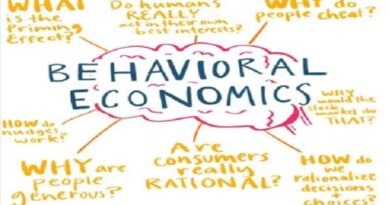The Influence of Economic Policies on Small Businesses
Small businesses are at the heart of many economies, contributing to innovation, employment, and community growth. However, the success of these enterprises often hinges on external forces, particularly economic policies set by governments. From tax laws to trade agreements, these policies can either help small businesses thrive or present significant challenges. This blog will examine how various economic policies affect small businesses and how entrepreneurs can adapt to navigate these shifting landscapes.
Tax Policies: A Critical Influence on Small Business Finances
Taxation is one of the most immediate ways that government policy affects small businesses. How taxes are structured can either support growth or burden small businesses with financial pressure.
Corporate Taxes:
Higher corporate tax rates can significantly reduce the profitability of small businesses, making it harder for them to reinvest in growth, hire new employees, or upgrade their operations. On the flip side, tax relief programs such as deductions, credits, and lower tax rates for small enterprises can provide much-needed financial breathing room. These savings can then be reinvested into the business, helping to drive innovation and competitiveness.
Local and State Taxes:
Sales and property taxes imposed by local governments also have an impact. Small businesses, particularly those in retail or brick-and-mortar services, may struggle with higher local tax rates. Unlike large corporations that can absorb these costs or spread them across broader markets, small businesses often have less flexibility. Favorable local tax policies can, however, help attract and retain small businesses in a community.
Wage Policies and Labor Laws:
Wage and labor regulations are another crucial area where government policy can affect the operational costs of small businesses.
Minimum Wage Laws:
Rising minimum wages can benefit employees but pose challenges for small business owners. Higher labor costs may require businesses to adjust pricing, reduce staff hours, or find other cost-saving measures. While these wage increases can improve employee satisfaction and productivity, the short-term financial burden may strain businesses operating on tight margins, such as those in hospitality and retail sectors.
Labor Regulations:
Small businesses must also comply with broader labor laws, such as regulations regarding employee benefits, paid leave, and workplace safety. While these laws protect workers, they often require small businesses to invest in compliance efforts. For small enterprises without dedicated HR or legal departments, staying compliant can be costly, both in terms of time and money.

The Role of Monetary Policy: Interest Rates and Financing:
Monetary policy, particularly the regulation of interest rates by central banks, has a direct impact on how small businesses access financing.
Borrowing Costs and Interest Rates:
When interest rates are low, borrowing becomes more affordable, encouraging small businesses to take out loans for expansion, inventory, or new projects. Conversely, higher interest rates can make borrowing more expensive, limiting the ability of small businesses to invest in growth. Since small businesses often rely on external financing to scale, changes in monetary policy can significantly influence their strategies.
Credit Accessibility:
Beyond the cost of borrowing, monetary policy affects the availability of credit. During times of economic instability, lending criteria tend to tighten, making it more difficult for small businesses—especially those without a strong credit history or substantial collateral—to secure loans. Access to credit is crucial for small businesses, and restrictions can delay growth or, in some cases, jeopardize survival.
Trade Policies and Their Influence on Small Business Operations:
Global trade policies and tariffs can significantly affect small businesses, especially those involved in international markets or dependent on imported goods.
Tariffs on Imports:
When governments impose tariffs on imports, small businesses that rely on foreign-made goods or materials may face increased costs. This forces them to either raise prices, which can reduce competitiveness, or absorb the costs, which can eat into profit margins. Large companies often have the resources to mitigate these impacts, but small businesses may struggle to adapt quickly.
Export Opportunities and Trade Agreements:
On the other hand, trade agreements that lower tariffs and create easier pathways for exporting goods can open new markets for small businesses. By expanding into international markets, small businesses have the potential to increase their revenue streams. These opportunities, however, require small businesses to stay informed about changes in trade policies and be agile enough to adjust their strategies accordingly.
Regulatory Policies: Balancing Compliance with Growth
Regulatory policies aimed at protecting consumers, employees, and the environment can create hurdles for small businesses, especially when these regulations are complex or difficult to navigate.
Cost of Compliance:
Small businesses often face difficulties in complying with strict regulations, especially in industries like manufacturing, food services, or construction. The costs associated with meeting health, safety, or environmental standards can be significant, diverting resources away from innovation or expansion.
Streamlining and Support:
On the other hand, well-designed regulations that offer clear guidelines and support systems can help small businesses succeed while ensuring public safety. When governments provide incentives, grants, or tax credits for compliance with new regulations, it can reduce the financial burden on small businesses and encourage broader participation in key initiatives, such as sustainability efforts.
Economic Stimulus and Financial Aid Programs:
Government stimulus packages and financial aid initiatives, especially during economic downturns, can be a lifeline for small businesses. These programs provide critical support through grants, low-interest loans, or direct payments to help cover operational costs like payroll and rent.
Short-Term Relief:
Stimulus measures can prevent small businesses from closing their doors during tough economic times. Programs that prioritize maintaining payrolls and covering essential expenses allow businesses to remain operational until they can return to profitability.
Long-Term Sustainability:
However, small businesses need to use such aid carefully to ensure long-term sustainability. Government assistance is often designed to be temporary, and over-reliance on these programs can inhibit a business’s ability to adapt to market conditions or become self-sustaining once the crisis passes.
Adapting to Economic Policy Changes:
Small business owners must remain informed about economic policy shifts and be ready to adapt. Whether it’s adjusting financial strategies in response to tax changes or preparing for fluctuations in interest rates, proactive business planning is key. Engaging with policymakers, joining industry associations, and seeking professional advice can help small business owners navigate these evolving policy landscapes.
Conclusion:
Economic policies play a critical role in shaping the success of small businesses. From taxes to trade agreements, these policies influence everything from day-to-day operations to long-term growth strategies. While challenges such as rising labor costs or regulatory compliance can be daunting, there are also opportunities in the form of tax breaks, accessible financing, and favorable trade policies. Small businesses that stay informed and adaptable will be better positioned to thrive in this complex, policy-driven environment.
FAQs:




